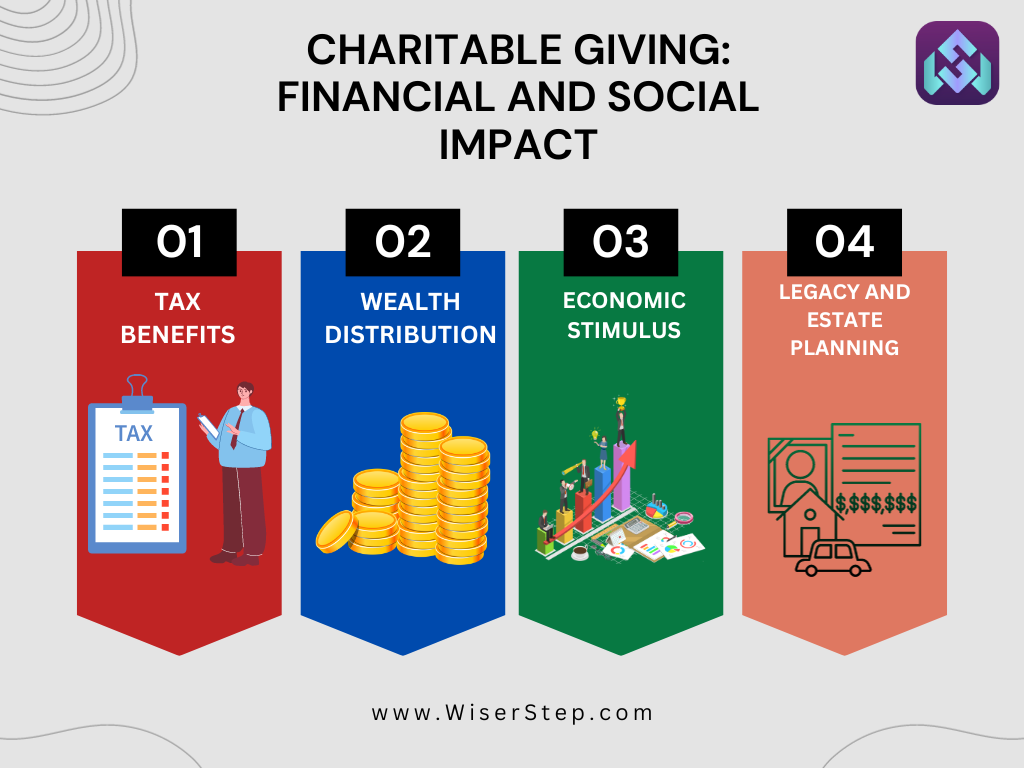In a world facing diverse challenges, the act of charitable giving stands as a beacon of hope, not just for the recipients but also for the givers themselves. Beyond the immediate aid it provides, charitable giving carries profound financial and social impacts that reverberate through communities, shaping a brighter future for all.
Financial Impact of Charitable Giving
Tax Benefits
One of the notable financial incentives for charitable giving comes in the form of tax deductions. Contributions made to eligible charities are often tax-deductible, reducing the donor’s taxable income. Understanding and leveraging these tax benefits not only encourage philanthropy but also provide financial advantages for the donors.
Wealth Distribution
Charitable giving plays a pivotal role in wealth distribution within society. It empowers individuals, regardless of their economic standing, to contribute to causes they believe in, thereby redistributing resources to those in need and fostering a more equitable society.
Economic Stimulus
Charitable donations act as an economic catalyst. By funding various programs, initiatives, and organizations, charitable giving fuels job creation, stimulates local economies, and drives innovation. This circulation of funds through charitable organizations contributes significantly to economic growth and development.
Legacy and Estate Planning
For many, charitable giving is an integral part of estate planning. Establishing charitable trusts, foundations, or including charitable bequests in wills allows individuals to leave a lasting legacy, ensuring ongoing support for causes close to their hearts while offering potential tax advantages for their estates.
Social Impact of Charitable Giving
Addressing Social Issues
Charitable giving directly addresses societal issues and concerns. Whether it’s supporting education, healthcare, poverty alleviation, environmental conservation, or social justice initiatives, donations play a pivotal role in combating these challenges and fostering positive change.
Community Empowerment
Charitable contributions empower local communities by strengthening nonprofits and grassroots organizations. These entities often have a deep understanding of community needs, driving impactful programs and services tailored to address specific challenges within their areas.
Fostering a Culture of Generosity
Charitable giving nurtures a culture of generosity and empathy. By setting an example and encouraging others to give back, it creates a ripple effect, inspiring more individuals and businesses to contribute to the greater good, fostering a more compassionate society.
Building Social Bonds
Engagement in philanthropy brings people together around common causes, fostering a sense of unity and camaraderie. Whether through volunteering, fundraising events, or collaborative efforts, charitable giving strengthens social bonds and encourages collaboration toward shared goals.
The Role of Technology in Facilitating Charitable Giving
Technological advancements have revolutionized the landscape of charitable giving, making it more accessible and efficient than ever before. Platforms and apps dedicated to fundraising and crowdfunding empower individuals to support causes globally, amplifying the impact of their contributions.
Charitable giving transcends mere financial transactions; it embodies a shared responsibility to uplift humanity and create a more equitable world. Its financial benefits, combined with its profound social impacts, underscore the transformative potential of generosity. Whether through financial contributions, volunteerism, or raising awareness, each act of giving contributes to a larger movement that shapes a better future for all.
By harnessing the financial advantages, embracing social responsibility, and leveraging technological innovations , individuals and organizations can maximize their impact and drive positive change that resonates far beyond immediate assistance, leaving a lasting legacy of compassion and hope.

